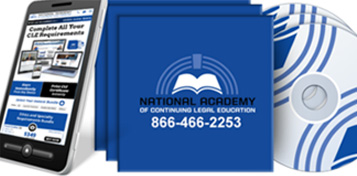About This Course
Planning a client’s estate involves more than just the transfer of wealth. To draft a customized plan that achieves a client’s unique goals requires an understanding the client’s values and convictions, and in many cases, his or her religious beliefs. A recent Gallup Poll on the role of religion in the United States, 37% of respondents self-identified as “Highly Religious.” That same year Americans donated upwards of $127B to support religious organizations and causes. Yet despite the central role religion plays in many clients’ lives, the topic is rarely addressed in the estate planning context where a client’s religious beliefs may actually inform their preferences with respect to the distribution of their wealth and/or end-of-life care decisions. In many cases, ensuring that these religious beliefs and traditions are adhered to and passed on to the next generation may even supersede a client’s other estate planning goals.
This CLE program will provide a practical survey of the many areas of estate and related planning that practitioners, including attorneys and CPA's can address client religious concerns. Examples will be provided for an array of faiths including: Christian, Catholic, Jewish, Islamic, Baha’i, Scientology, Buddhism, Hinduism and more. These are vital concepts that every practitioner should be familiar with.






